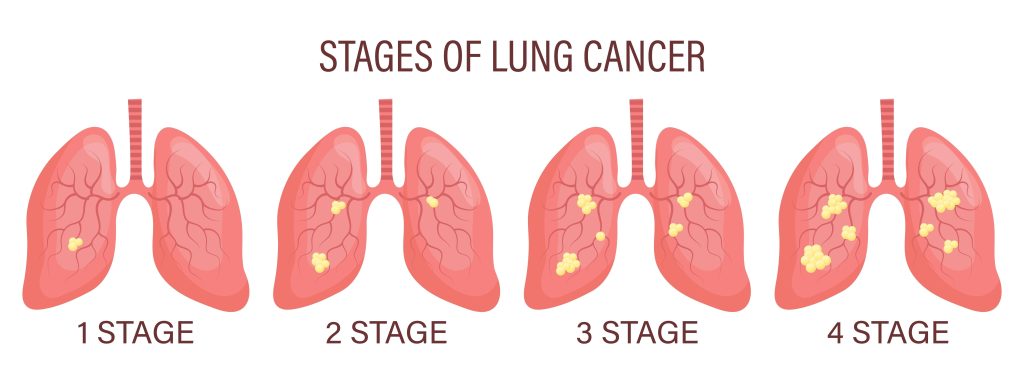Mark Kopec Now
Lung Cancer
Lung Cancer and Medical Malpractice: Understanding Your Rights with Baltimore Lung Cancer Lawyer Mark Kopec
Lung cancer remains the leading cause of cancer-related deaths worldwide, claiming millions of lives annually. Early detection is crucial for successful treatment and improved prognosis. Consequently, delayed diagnosis of lung cancer results in many medical malpractice cases. If you have been the victim of a misdiagnosis of lung cancer, then it is critical for you to speak directly with Baltimore lung cancer lawyer Mark Kopec at the Kopec Law Firm.
This webpage provides information on lung cancer, including its anatomy, symptoms, diagnosis, treatment options, and also potential medical malpractice claims. The Kopec Law Firm provides you with this information to equip you with knowledge about lung cancer’s symptoms, diagnosis methods, and different types.
Understanding Your Lungs
Your lungs are a pair of spongy organs located in your chest cavity. They play a vital role in respiration, taking in oxygen from the inhaled air and releasing carbon dioxide during exhalation. Each lung has lobes (three in the right lung and two in the left) and further smaller structures called bronchi and bronchioles. These airways eventually end in tiny air sacs called alveoli, where oxygen exchange takes place.
Symptoms of Lung Cancer
Despite lung cancer symptoms often developing gradually, doctors may continue to mistake the symptoms for other respiratory conditions. Early symptoms of lung cancer can include:
- Persistent cough: A cough that lasts for weeks or worsens over time, then sometimes producing blood-tinged mucus.
- Shortness of breath: Experiencing difficulty catching your breath, even with minimal exertion.
- Wheezing
- Chest pain: A dull ache or sharp pain in the chest, which consequently may worsen with deep breathing, coughing or laughing.
- Unexplained weight loss: Specifically, losing weight unintentionally without trying.
- Loss of appetite
- Hoarseness.: Changes in your voice, such as persistent hoarseness.
- Frequent respiratory infections: Repeated bronchitis or pneumonia.
- Fatigue: Feeling unusually tired and also lacking energy.
- Swelling in face or neck
The above symptoms can persist or worsen. It is especially important for doctors to make an early diagnosis. A delayed diagnosis can allow the cancer to spread.
Diagnosing Lung Cancer: Doctors to See and Diagnostic Tests
If you experience any of the above symptoms, then it’s crucial to consult a doctor. Depending on your initial evaluation, your doctor may refer to a pulmonologist (a lung specialist) or an oncologist (a cancer specialist).
Early diagnosis of lung cancer significantly improves treatment outcomes. Various tests and procedures can aid in diagnosis, including:
- Chest X-ray: An initial imaging test to check for abnormalities in the lungs.
- Low-dose CT scan: A more detailed picture of the lungs and surrounding tissues. It’s often used for lung cancer screening in high-risk individuals.
- PET scan: This scan can help assess whether cancer has spread to other parts of the body.
- Sputum cytology: A sample of mucus coughed up from the lungs is analyzed for the presence of abnormal cells.
- Biopsy: A tissue sample is collected from the lungs using a needle or bronchoscopy (a procedure where a thin, lighted tube is inserted through the airways) and examined under a microscope for cancer cells.
Types of Lung Cancer
There are two main types of lung cancer:
- Non-small cell lung cancer (NSCLC): This is the most common type, accounting for around 85% of cases. NSCLC is further classified into various subtypes based on the appearance of cancer cells under a microscope:
- Adenocarcinoma: This type typically originates in the glandular cells of the lungs.
- Squamous cell carcinoma: This type starts in the flat cells lining the airways.
- Large cell carcinoma: This is a less common type with larger cancer cells.
- Small cell lung cancer (SCLC): This type is less common but tends to be more aggressive and spread rapidly. SCLC is not further classified into subtypes.
Treatment Options
Treatment for lung cancer depends on the type, stage (extent of spread), and your overall health. Common treatment options include:
- Surgery: This may involve removing a portion of the lung or the entire lung if possible.
- Chemotherapy: Powerful drugs are used to kill cancer cells.
- Radiation therapy: High-energy rays are used to destroy cancer cells.
- Immunotherapy: This treatment helps your immune system fight cancer cells.
- Targeted therapy: These drugs target specific abnormalities in cancer cells.
Stages of Lung Cancer

The stage of lung cancer refers to the extent to which the cancer has spread. Staging helps determine the best course of treatment and estimate prognosis.
The TNM staging system is commonly used, considering:
- T: Size and location of the tumor(s).
- N: Involvement of lymph nodes.
- M: Presence of distant metastasis (spread to other organs).
Each stage has a number assigned, typically ranging from 1 (least advanced) to 4 (most advanced).
Prognosis and the Need for Baltimore Lung Cancer Lawyer Mark Kopec
The prognosis for lung cancer depends on several factors, including the type and stage of cancer, your age, and overall health. Early detection is crucial for a better prognosis. According to the American Cancer Society, the 5-year survival rates for stage 1A lung cancer is 92%, while it drops to only 5% for stage 4 lung cancer
Medical Malpractice Claims in Lung Cancer with Baltimore Lung Cancer Lawyer Mark Kopec
If you believe your doctor failed to diagnose your lung cancer in a timely manner, you might have a medical malpractice claim. Here are some potential grounds for such a claim:
- Failure to order appropriate diagnostic tests: If a doctor fails to order necessary tests like chest X-rays, CT scans, or biopsies despite concerning symptoms, it could be considered negligence.
- Misinterpreting test results: If a doctor misinterprets a test result that shows signs of lung cancer, this could lead to a delay in diagnosis.
- Failure to order follow-up tests: In some cases, initial tests might not be conclusive. A doctor’s failure to order follow-up tests despite persistent symptoms could be a form of malpractice.
Important Considerations
Medical malpractice cases are complex and require legal expertise. If you believe you have a case, then it’s wise to consult with an attorney specializing in medical malpractice. We can review your medical records, assess the situation, and specifically advise you on your legal options.
Next Step: Call Baltimore Lung Cancer Lawyer Mark Kopec
If you are injured by delay in diagnosis of lung cancer, it is essential to consult with Baltimore lung cancer lawyer Mark Kopec as soon as possible. Visit our free consultation page or video. Then contact the Kopec Law Firm at 800-604-0704 to speak directly with Attorney Mark Kopec. He is a top-rated Baltimore medical malpractice lawyer. The Kopec Law Firm is in Baltimore and pursues cases throughout Maryland and Washington, D.C.





